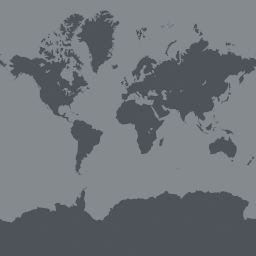Southern South America shares more than five million species occurrence records through the GBIF network, but only 10 per cent of those have georeferenced locations without detected issues. To strengthen biodiversity data use in conservation and decision-making, this project aims to improve the geographic data quality of records from Southern South America through three main activities:
- Regional georeferencing training workshops. These hands-on sessions will target individuals from institutions within GBIF participant countries with a demonstrated understanding of biodiversity data management and the personal and institutional capacity to replicate the workshops and extend their reach to a larger audience.
- Georeferencing the 5,000 most common localities in Southern South America. Achieving an target rate of six localities per person per hour during and after the workshops could improve 3.5 million occurrence records. The project team will gather a list of localities from the region already available through GBIF, which will be complemented by localities provided by key institutions not yet shared through the network. The georeferenced localities will be made openly available for consultation through a Kurator workflow to allow easy re-ingestion of the improved data and further use by all members of the community in newly published datasets.
- Identification of future georeferencing priorities based on the results of the previous activities and broader regional needs. This activity will guide future georeferencing initiatives within the region.
The project contributes to several goals and milestones of the 2017-2021 Global GBIF Implementation Plan, including Empower Global Network (activities 1b and 1g), Fill Data Gaps (activity 3a) and Improve Data quality (activities 4b and 4c).
Project Progress
With a kick-off meeting among project partners at the start of the project and regular remote meetings throughout, the project was successfully implemented and achieved its objective to improve the geographic data quality of Southern South America records.
This was achieved through the different activities proposed and although implementation of the project was affected by the COVID-19 pandemic the project team was able to reorganize and adjust accordingly, including adapting the format of some activities from onsite to fully virtual settings.
Activities completed during the project included two georeferencing workshops to increase local capacity and improve the quality of georeferenced data published in GBIF being held. The first workshop was held onsite in Buenos Aires, Argentina, in December 2019 during which 38 students were trained. The second workshop, which was to be a replica of the first, was adapted for a 100% virtual format and held between August – December 2020 and was attended by 39 students in Chile.
In addition to this a series of three webinars, complementary to the workshop courses and open to the general public, were developed and held during November 2020.
- Webinar 1: Planning a georeferencing Project
- Webinar 2: Documentation and tools for georeferencing
- Webinar 3: Use of Google Maps and Google Earth
All videos produced as training material for the workshops, and those for the webinars are available on YouTube. Other training materials developed during the course of the project are also available for use by the community (see final report for further details).
Other activities completed was the identification of local/national sources of localities, for which a prioritization of locations “Georeferencing priorities within the region” was developed and by the end of the project > 6,500 localities from Argentina and Chile were georeferenced.
A global gazetteer, including the georeferenced localities and built to allow querying of all georeferences present in GBIF, was also developed and which forms an integral part of the Biodiversity Enhanced Location Services (BELS).
As an additional project activity and reusing documentation developed for the Argentinian workshop, an extra workshop was held in March 2020 in San Miguel de Tucumán (Argentina) for the technical personnel of the natural history collections of the Fundación Miguel Lillo (FML), for which 20 participants from 11 natural history collections of FML attended.


